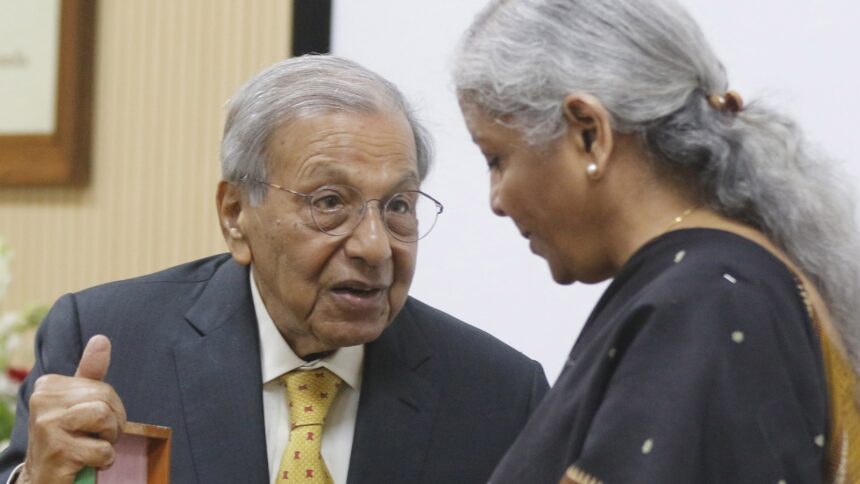Industries which have adopted artificial intelligence will be instrumental in making India the third-largest economy in the world, Finance Minister Nirmala Sitharaman said on Thursday, adding that productivity gains are faster when technology is adopted.
“The kind of industries which are going to play a big role in speeding up India getting to the third position will largely depend on those which adopted AI. So, there is no ‘India’ industry or ‘Bharat’ industry, meaning new-age industry versus the traditional, old-fashioned industry,” the Finance Minister said in response to a question at a discussion with students of University of at the Institute of Economic Growth.
India, currently the fifth-largest economy in the world when the GDP is measured in terms of current prices, is projected by the International Monetary Fund to become larger than Japan in the current fiscal ending March 2026.
The Finance Minister noted that productivity has not risen in India as rapidly as the ambition to grow fast. To change that trend, attempts have been made to identify sectors where funds can be invested by both the government as well as the private sector. The adoption of technology, Sitharaman said, was another factor. “Technology being adopted could have multiplied your productivity faster than otherwise… Today, the rapidity with which some sectors are showing drastic change, I find the feature defining that drastic change is the adoption of technology,” she said.
Cost of climate transition
In response to a question on the transition to green energy, the Finance Minister said that while the issue has not changed in the last couple of years, the answer has become more difficult as many countries have understood the “true cost of having to move from fossil fuel to renewable”. At the same time, some countries decided to impose tariffs on “not-so-green products”, the Finance Minister added, putting pressure on countries such as India who were already making the move to renewable sources of energy.
“So, if you were to ask me what are you doing about it, we are only making sure that globally we are negotiating to make sure that the global multilateral institutions will have that kind of leverage with their funds so that they can fund for common cause public goods,” Sitharaman said, pointing to NK Singh – Chairman of the 15th Finance Commission and the moderator for the session — and citing the expert group he co-chaired with former US Treasury Secretary Larry Summers during India’s G20 presidency to suggest ways to strengthen multilateral developments so that they can meet global challenges such as climate change.
Singh, in his opening remarks, said India was at a “unique moment” as it sought to balance security and development. “Is it possible to be a self-subsistence, secure economy and yet seek high rates of economic development? What about its economic and fiscal consequences?” Singh said.
Defence tech integration
Commenting on India’s defence capabilities, the Finance Minister said the “mastery in technology integration” across the three arms of defence forces shown by India during Operation Sindoor could be studied by defence experts.
“Your systems in defence today are able to integrate equipments coming in from elsewhere. They can talk to our operational systems and our operational systems are capable of functioning on their own and between the three forces: air force, army, and navy. There is that interoperability.”
On defence production, Sitharaman – who has previously served as the defence minister – said that while India does import certain components, “largely you are producing that which you need for your precision operations”.








